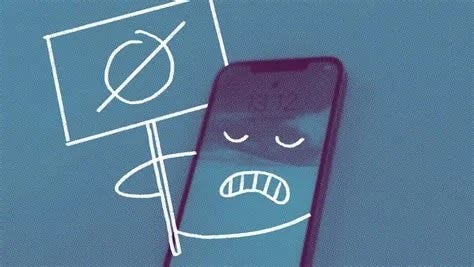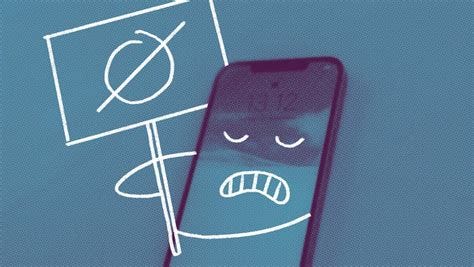It’s beyond debate that most of us should spend less time on screens.
It’s also beyond debate that without guardrails on the siren call of tech, we humans will do fewer of the things that make us happy and smart - like connecting with people, developing skills, reading with deep attention, and tolerating boredom.
In other words, our time on screens can make us sadder and stupider.
But screens don’t cause mental illness.
You might believe otherwise if you’ve been convinced by the ‘smartphones have destroyed kids’ mental health’ movement. They liken it to how cigarettes cause cancer. But there’s no comparison.
The biology of how smoking increases risk for things like lung and laryngeal cancer is well understand, and we know smokers are as much as 30 times more likely to develop these and other cancers. There’s nothing to suggest it works like this for digital tech and mental illness.
Instead, what the scientific consensus - and common sense - show is that the effects of tech on wellbeing depend on what they heck you’re doing on these technologies: Are you scrolling through TikTok 8 hours a day, every day (bad) or are you creating art, community, or interesting work (good). It also depends on whether a person - child or adult - is learning to put brakes on tech in their lives.
There are nuances.
Movements don’t like nuance.
The ‘social media has destroyed a generation’ movement is ignoring the details in favor of alarm ringing and scoldings. They’re using the demagogue’s playbook - amplify fears and anxieties, overstate and oversimplify research, and ignore the data that don’t fit your story.
I reviewed The Anxious Generation by Jonathan Haidt for the New York Times, and this gives you a good picture of where I stand. This is the book that energized this movement for the past year, lit a fire under it. In my review, I agree with the broad message - technology can’t be allowed to take over our kids’ childhoods. I tried to write a nuanced, fair review, and to be on the side of ‘less is more’ when it comes to digital technology in our lives. I’ve been anti-social media pretty much from the moment there was something called Facebook. I can smell a rat a mile away.
I also agree with many suggestions about how to unwind our lives from technology - particularly for families with young children and teens. The emphasis on creating more things to do off-screen - like, creating more ‘third spaces’ to socialize and do enriching and generally fun stuff - should be emphasized even more.
All that to say, if their approach could really work, I might get on board. But they have no positive vision for how to live with technology. They’re abolitionists through and through, and therefore risk ending like so many do: by making the problem worse.
Remember Nancy Reagan’s Just Say No drug campaign? A public health case study in what not to do. During the AIDS crisis, fear mongering and abstinence demands led to increases in unsafe sex. How about the pandemic? Telling Americans to wear masks at all times undermined public health officials’ ability to convince them to wear masks when it really mattered.
Digital absolutism also risks blinding us to other causes — and solutions. In 1960s Britain, annual suicide rates plummeted. People believed it was because of the proliferation of antidepressant meds. Turns out, it was the phaseout of coal-based gas for household stoves. This directly blocked opportunities for the most common suicide method - gas poisoning. Means restriction, because it gives the despairing one less opportunity for self-harm, has since become a key strategy for suicide prevention.
There are other problems with how Haidt and his fellow digital absolutists advance their agenda.
For one, they flood the zone with disingenuous strawman arguments. There are too many to list, but it boils down to this: Smartphones should be outright banned because they pose dangers to kids. Anyone who disagrees with this must think the opposite - that there are no negative consequences of digital tech and that kids should use them freely.
There is no scientist - or non-scientist interested in the topic - I have ever met who thinks this.
Haidt and his followers also deny that healthy relationships between youth and social media are possible - and in his book even criticizes the former U.S. Surgeon General Dr. Vivek Murthy for suggesting as much.
The absolutists have raised the alarm, and energized people behind the goal of reigning in tech. Thank you. But the tools we need for raising the alarm are different than those we need for developing sustainable solutions.
During a book tour appearance on GMA, Haidt claimed, “When kids moved their social lives onto social media, it’s not human, it doesn’t help them develop, and right away, their mental health collapses.”
“Right away, their mental health collapses?” Of course it doesn’t work that way. Social media aren’t magic. This is fear-mongering, pure and simple.
Haidt, in the last pages of his book, writes:
I’ve been struggling to figure out, what is happening to us? How is technology changing us?…The phone-based life produces spiritual degradation, not just in adolescents, but in all of us.
I’m concerned about these messages, because in the battle between the spiritually elevated and the degraded, the ‘degraded’ are fair game.
You can see it in the treatment of those who disagree with the movement. Referred to as skeptics, those who refuse to be ‘true believers’ are punished accordingly. Take Dr. Amy Orben, who was appointed by the U.K.’s Department for Science, Innovation, and Technology to lead a review on the impact of smartphones on youth. She was excoriated and her career threatened for daring to imply that when it comes to phone bans, "no one size fits all." The digital absolutists love a good witch hunt.
Then, there's Dr. Candice Odgers who, in taking a similar stance in her Nature review of Haidt's book, was bullied, harassed, and threatened online by members of this movement. This is dangerous, adding to the climate of intolerance and fear at a time when academic freedoms in the U.S. are under serious attack.
I’m also concerned about what this movement is leaving out. They claim that only the proliferation of smartphones can explain the rise in youth mental illness and suicide over the past decade. Yet, they choose to ignore clear trends in violence against teens and parent-age drug death rates during this same period. At the very least, if they actually care about helping kids, they should look at these trends in conjunction with technology use.
I am a scientist, so I am a proud skeptic. I know that details matter for creating sustainable solutions. Therefore, I can hold a nuanced view in my mind: leave phones out of schools and delay kids’ use of social media and we can’t blame digital tech for everything because it is one of many factors affecting youth mental health.
We have to push back against this movement to demonize all technology because in the end that movement will make things worse. There are smarter, more long-lasting approaches. We’ve been talking about them for years - like here and here and here and here.
Letting go of this one simple answer - ‘phones have destroyed a generation’ - when it comes to the problem of youth mental illness is scary. It demands a lot from us, including the willingness to look inward. It forces us to ask - what happens if all the phones are taken away? Will our kids be healed?
If only it were so.
The absolutists have raised the alarm, and energized people behind the goal of reigning in tech. Thank you. But the tools we need for raising the alarm are different than those we need for developing sustainable solutions.
Here’s my wish list: I hope the absolutists shift gear and use their considerable energy and platform to address a range of factors that affect our kids’ wellbeing - perhaps even things that drive them into the arms of smartphones and digital escapism in the first place.
I hope that while they help youth reduce screen time, they also see that digital media can be a good part of kids’ lives - and even a lifeline.
I hope this movement joins the rest of us to help prepare kids to become wise digital citizens in a world where we need such wisdom more than ever.





Excellent post!!!!
Yes! The generation becoming anxious is the generation of parents reading this book! It’s infuriating.